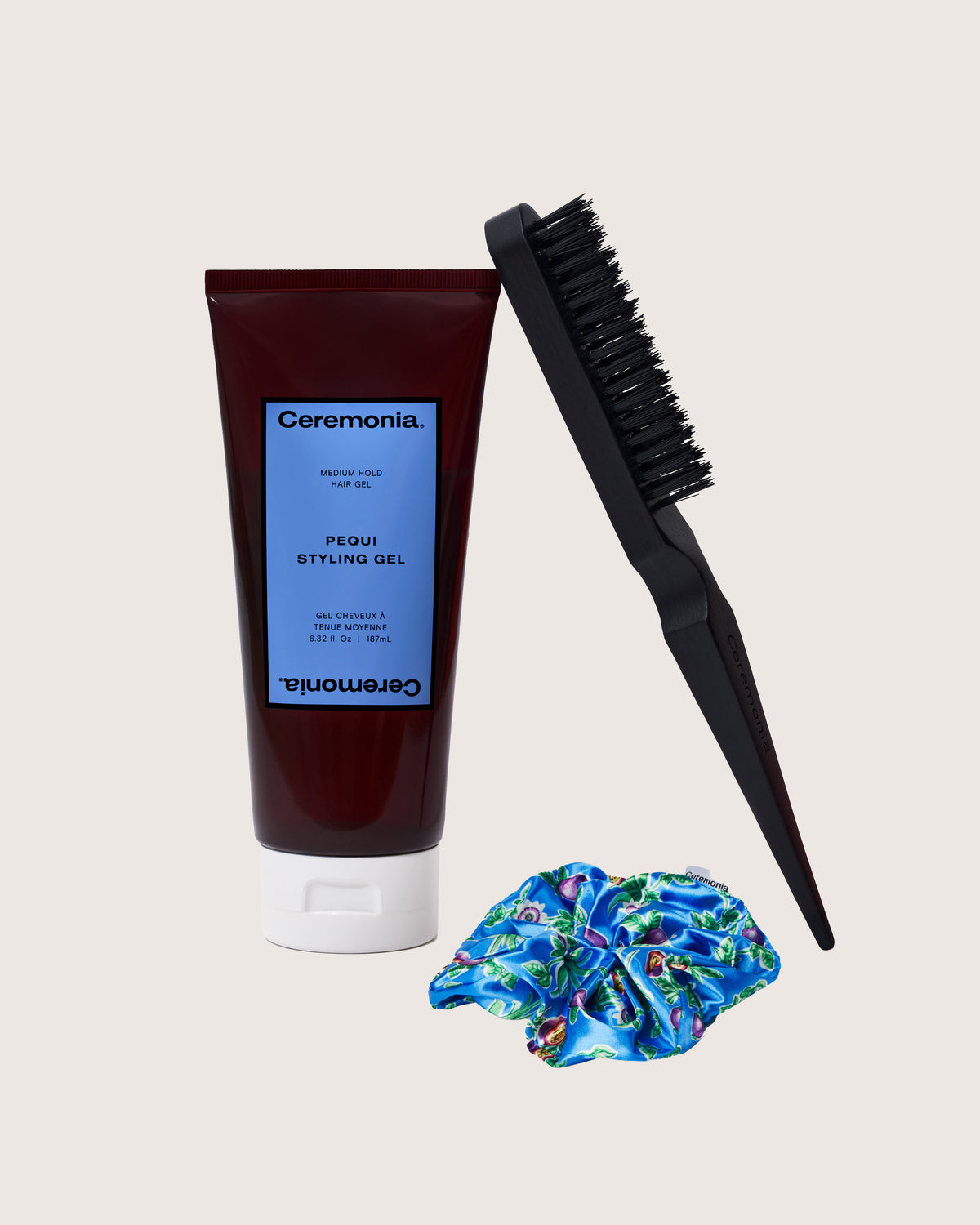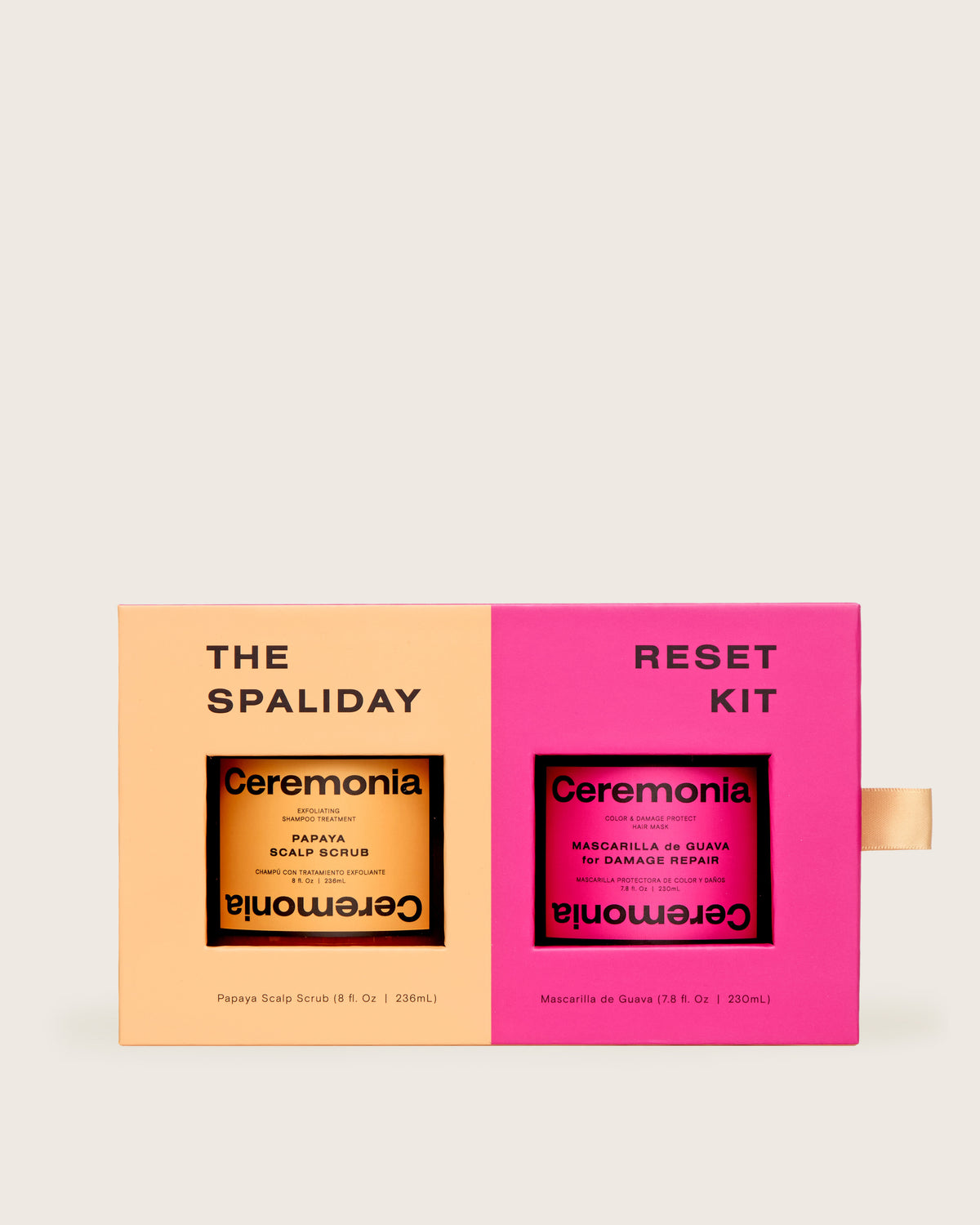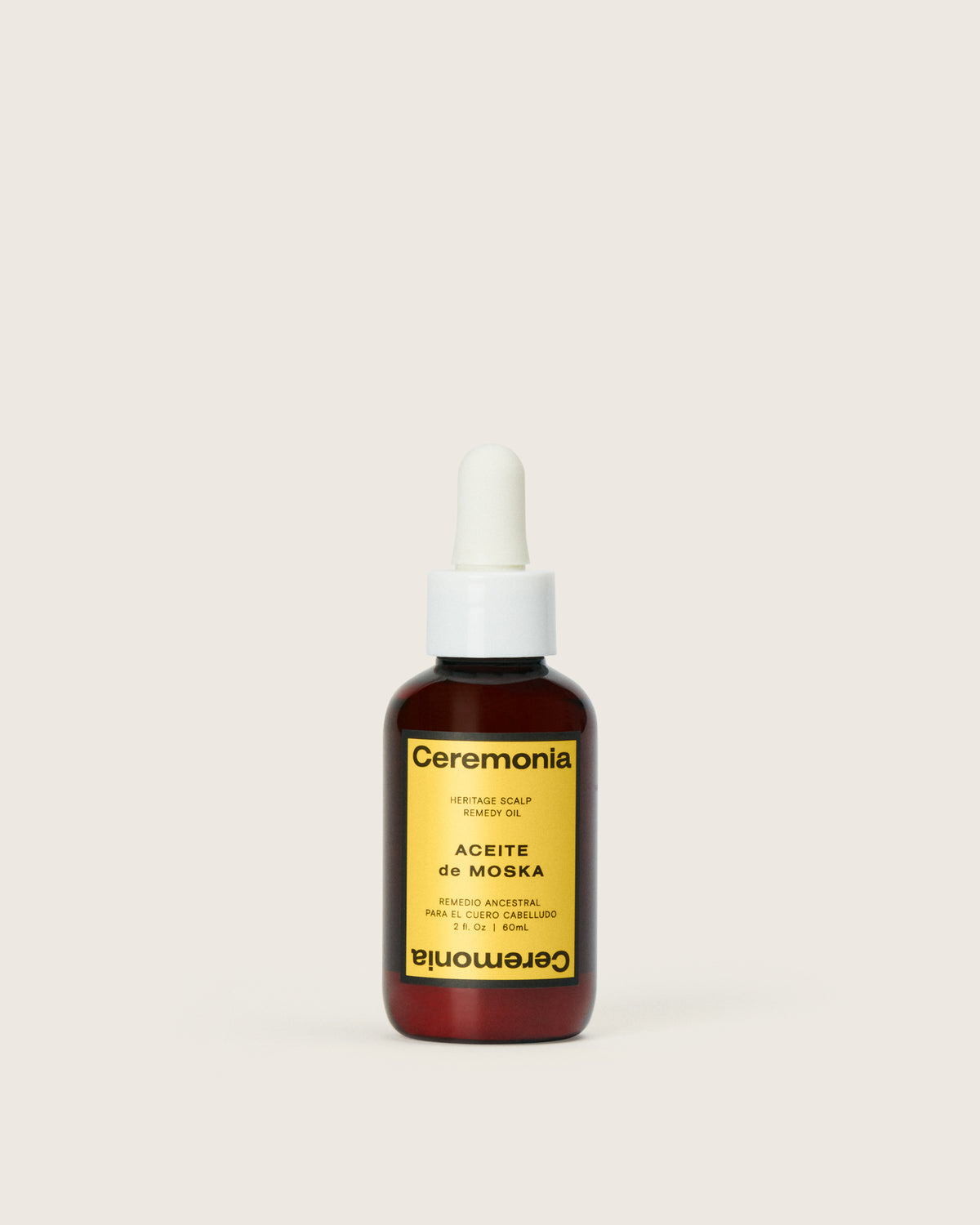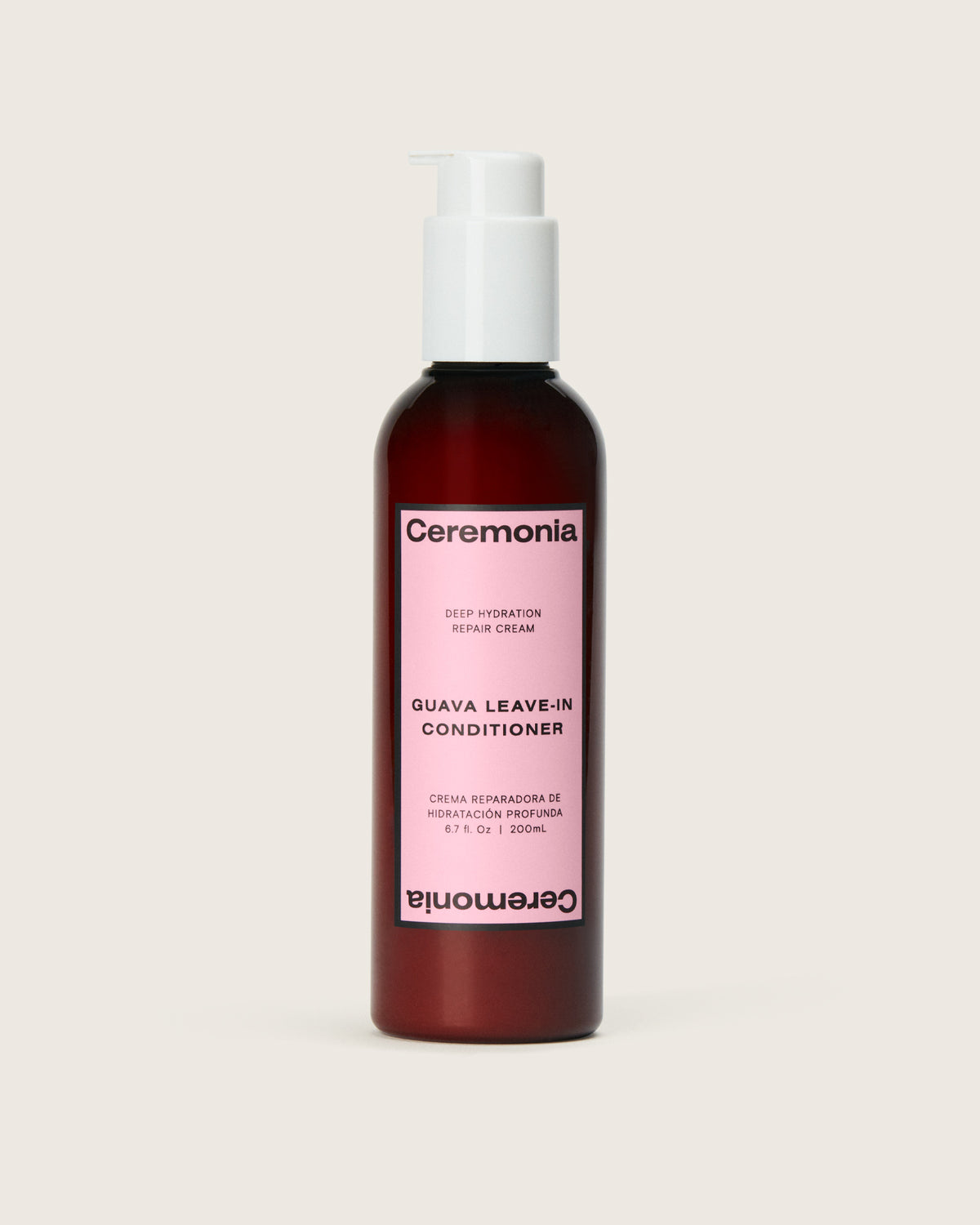Every day, our hair faces damage from heat styling, chemical treatments, and environmental stress. Many people are now turning to tropical ingredients for hair care as an effective way to restore damaged hair without harsh chemicals. The wisdom of indigenous beauty practices is being confirmed by modern science, revealing how nature’s bounty can revive dull, brittle locks. From island countries to Latin America, generations have relied on these natural hair remedies. Today, brands like Ceremonia are embracing these time-tested ingredients in their products. The result is a holistic approach to haircare that nourishes strands from root to tip, leaving hair healthier and more resilient.
The Challenge of Damaged Hair
An outer cuticle layer protects hair. When that cuticle is worn down through excessive washing, brushing, coloring, or heat, the inner cortex loses strength. This leaves strands thin, fragile, and prone to breakage. Split ends, frizz, and brittleness are common signs of this damage. Hydration and nourishment are key for those seeking a treatment for hair breakage. Unlike synthetic chemicals that may only mask issues, natural ingredients can provide the vitamins, fatty acids, and antioxidants needed actually to mend and fortify the hair structure. I
Coconut Oil for Hair: Nourishing Shine Booster
When it comes to natural oils for shine, coconut oil tops the list. This oil has a unique ability to penetrate deep into the hair shaft. Rich in medium-chain fatty acids, coconut oil binds to the hair’s proteins, protecting them from protein loss and moisture loss. In fact, studies have shown that regular use of coconut oil can significantly strengthen hair. Coconut oil use led to around a 41% reduction in hair breakage, while also improving scalp hydration. Sealing the cuticle locks in moisture and gives a glossy finish, making it ideal to restore damaged hair and add luster.
To use coconut oil, warm up a tablespoon or two and apply it as a pre-shampoo mask or leave-in treatment on damp hair. Focus on the ends where damage is worst. Leave it on for at least 30 minutes (or even overnight) before washing out. The result is softer, smoother hair that shines with health. Just remember that a little goes a long way, as using too much can weigh hair down.
Aloe Vera: Hydration and Scalp Care
If your hair is dry, brittle, or your scalp is itchy, aloe vera is a game-changer. This succulent plant is renowned for its aloe vera hair hydration properties, thanks to its high water content and mucilaginous gel. Applying fresh aloe vera gel to your hair delivers a burst of moisture to parched strands and a soothing effect to the scalp. Aloe is packed with vitamins (A, C, E, B12), minerals like zinc and copper, plus amino and fatty acids that moisturize hair and scalp while reducing breakage. In other words, aloe vera acts as a natural conditioner.
Aloe vera is also gentle on the scalp. It has anti-inflammatory properties that can calm irritation and help with dandruff. By maintaining a healthy scalp environment, aloe supports better growth from the roots. To use it, you can scrape the clear gel from an aloe leaf and blend it until smooth. Apply this gel as a mask on your scalp and through your hair length. Leave it on for 30–60 minutes, then rinse with a mild shampoo. With regular use, hair feels more supple and less prone to snapping. Whether used straight from the plant or in a prepared hair product, aloe vera truly earns its reputation as a hydration hero for hair.
Hibiscus: Flower Power for Growth and Strength
Across tropical regions, hibiscus is a botanical powerhouse for hair health. Its vivid petals and nutrient-rich leaves have been used for centuries to rejuvenate hair from root to tip. Here’s how this remarkable flower strengthens strands:
- Nourishes the Scalp and Follicles: Hibiscus hair oil is abundant in vitamins A and C, both of which are crucial for maintaining scalp vitality and hair follicle strength. Vitamin A supports the production of sebum, keeping the scalp moisturized and reducing dryness or flakiness. Vitamin C, a potent antioxidant, helps neutralize free radicals that can weaken hair roots.
- Stimulates Hair Growth Naturally: The amino acids found in hibiscus contribute directly to keratin production, which is the primary protein that forms hair structure. When applied as an oil or mask, these nutrients penetrate the scalp to awaken dormant follicles and accelerate growth cycles. Herbal practitioners often recommend hibiscus-infused oils to stimulate circulation, allowing more oxygen and nutrients to reach the roots.
- Prevents Breakage and Split Ends: Its mucilage content adds slip to hair, making detangling easier and minimizing mechanical damage. Over time, consistent use of hibiscus for hair growth treatments can reduce split ends and frizz while enhancing the hair’s overall smoothness and manageability.
- Strengthens Strands From Within: The minerals and amino acids in hibiscus reinforce the internal structure of each strand, helping hair withstand daily stress from heat, styling, and environmental exposure. Unlike synthetic products that offer temporary results, hibiscus strengthens hair from within by rebuilding weak spots along the shaft. This results in more resilient, lustrous hair that’s less prone to shedding or brittleness.
- Balances Scalp Health and Encourages Shine: Its natural acids gently exfoliate dead skin cells, clearing clogged follicles and promoting a clean, balanced scalp environment. The result is hair that looks shinier and feels softer, with enhanced bounce and natural luster that reflects overall scalp wellness.
From ancient Ayurvedic traditions to modern natural haircare, hibiscus remains a cherished ingredient for achieving strong, vibrant hair. Regular use can transform dull strands into shinier locks, proving that nature’s flower power truly begins at the root.
Guava Leaves and Extract: Vitamin-Packed Strengtheners
The guava fruit is delicious, but its leaves are a secret weapon in hair care. In tropical regions, using guava leaves for hair care is common to combat shedding and promote growth. Guava leaves are loaded with vitamins B and C, antioxidants, and flavonoids that benefit the scalp and strands. Brewing the leaves into a tea and using it as a rinse or scalp tonic can strengthen hair follicles and reduce hair fall. In fact, guava leaves are known to help maintain the roots, reduce excessive shedding, and even fend off dandruff due to their antimicrobial properties. High levels of vitamin C in the leaves enhance collagen activity in the scalp, which in turn supports the production of healthy new hair and improves volume. Today, you can even find guava extract hair serum products that offer these benefits in a convenient form. By concentrating guava’s nutrients into a serum, these treatments can be applied to clean hair to strengthen strands and guard against UV or environmental damage. Whether you prefer a DIY leaf rinse or a store-bought serum, guava is proving to be a powerhouse for resilient, thick hair.
Papaya: Enzymatic Repair and Growth
The tropical papaya is more than just a tasty fruit – it’s packed with nutrients and enzymes that can rejuvenate your hair. A papaya hair treatment typically involves using the flesh of ripe papaya in a mask form. Papaya contains the enzyme papain, which helps gently remove dead skin and excess oil from the scalp, essentially acting as a natural exfoliant to keep hair follicles open and healthy. It’s also rich in antioxidants like lycopene, as well as vitamins A and C, which together nourish the scalp and hair strands.
If you’re dealing with dull or brittle hair, papaya can help in multiple ways. Its rich vitamin content (especially vitamin A) supports sebum production in the scalp, which is the hair’s natural conditioner. This can restore shine and softness to dry hair. Papaya’s folic acid content also improves blood circulation in the scalp, ensuring that hair roots get plenty of nutrients. To create a papaya mask at home, blend half a ripe papaya (remove the seeds and skin) with a small amount of honey or yogurt. Apply this smooth mixture to your hair and scalp, cover with a shower cap, and let it sit for 30 minutes. Rinse thoroughly. People often notice their hair feels more conditioned and looks more lustrous after a papaya mask.
Banana: Vitamin Boost for Strong, Silky Hair
Bananas are another kitchen staple that doubles as a fabulous hair remedy. A banana hair mask is famous for turning dry, frizzy hair into softer, stronger strands. The magic lies in the banana’s nutritional profile. Bananas are high in silica, a mineral that the body uses to create collagen, a protein that helps maintain strong, thick hair. By applying banana pulp to your hair, you’re essentially delivering silica and other goodies directly to the strands. This can help make your hair stronger and thicker by reinforcing the structural proteins in the hair shaft. Bananas are also packed with vitamins (like B6 and C) and minerals (like potassium and magnesium) that improve hair’s elasticity and moisture retention.
Coconut Milk: A Protein-Rich Conditioner
While coconut oil gets a lot of attention, coconut milk deserves its own spotlight in natural hair care. Coconut milk is the creamy liquid extracted from the grated flesh of coconuts, and it’s brimming with beneficial nutrients. One of the top coconut milk hair benefits comes from its high protein content. Hair is made mainly of a protein called keratin, and coconut milk’s proteins can help fortify the hair shaft. In fact, coconut milk has such a rich protein profile that it can potentially keep your hair strong and less prone to breakage. It’s also high in healthy fats that penetrate hair easily, strengthening the cuticle and reducing protein loss, similarly to coconut oil.
In addition, coconut milk contains a variety of vitamins (C, E, B1, B3, B5, B6) and minerals that support hair health. Its moisturizing fats and antioxidants can soothe a dry scalp and act as a natural conditioner for damaged hair, helping to detangle and add shine.
Gentle Cleansing and Sulfate-Free Shampoos
Incorporating tropical ingredients into your routine will go a long way in healing your hair, but it’s equally important to avoid harsh cleansers that can undermine your progress. Regular shampoos often contain sulfates (such as SLS or SLES), which are strong detergents that create a large lather. The issue is that sulfates can strip away too much of your hair’s natural oils. If you have dry, delicate, or textured hair, these sudsy formulas can leave your hair feeling rough and brittle. Dermatologists note that fine or dry hair types are more fragile, and sulfate shampoos tend to wash out too much of the natural oils needed to keep strands healthy. By switching to sulfate-free products, you allow those beneficial oils to stay in the hair longer, providing continuous hydration and protection. You might notice less frizz and more softness, since the hair cuticle isn’t being roughed up as much during washing. If you color your hair, sulfate-free shampoos help preserve your color by not washing it out as quickly. When reading labels, look for shampoos that explicitly say sulfate-free, or avoid ingredients ending in “-sulfate” in the first lines of the ingredient list. Cleansing with gentle products means the tropical treatments you apply can work more effectively, and your scalp stays calm and healthy.
These natural solutions are not about overnight miracles but rather consistent care that yields cumulative results. By feeding your hair pure plant oils, butters, fruits, and leaves, you address the root causes of damage. You’ll likely see improvement in strength, texture, and shine. The best part is that you can achieve this without exposing yourself to the drying alcohols, silicones, or harsh chemicals often found in conventional products. The journey to healthy hair can absolutely include your kitchen or garden as well as your bathroom cabinet. The ingredients for healthy hair might just be those simple tropical treasures that have been hiding in plain sight. By blending tradition with modern knowledge, you can create a hair care routine that is both indulgent and effective.
Sources
-
Healthline – Coconut Oil for Your Hair: Benefits, Uses, and Tips healthline.comblog.scarringalopecia.org
-
SAF Blog – Hair Oils: Do Coconut, Castor, and Argan Oils Really Work? blog.scarringalopecia.org
-
Real Simple – The Many Benefits of Aloe Vera for Hair — and How to Use It realsimple.com





